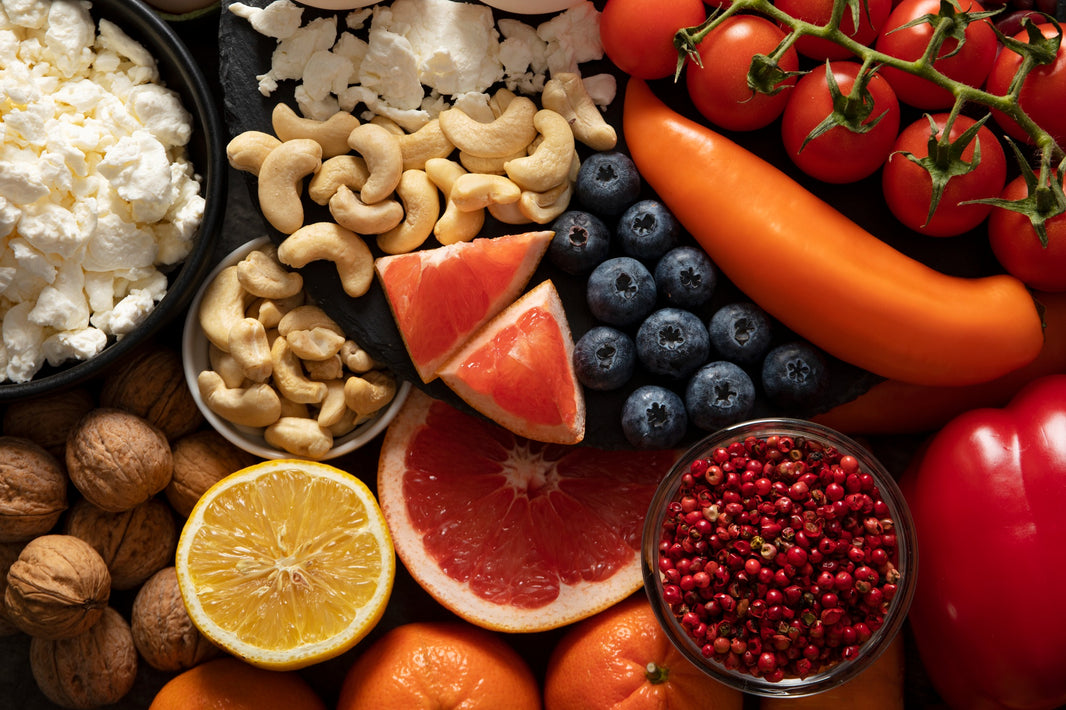Protein is often hailed as the cornerstone of muscle recovery and growth, but how much do you actually need? Whether you're an athlete, a fitness enthusiast, or someone looking to improve your overall health, understanding the role of protein in muscle recovery is crucial. In this blog post, we'll explore why protein is essential for recovery, how much you really need, and the best sources to include in your diet.
Why Protein is Essential for Muscle Recovery
When you engage in physical activities, especially strength training or high-intensity workouts, your muscles experience microscopic damage, also known as muscle fiber tears. This is a natural and necessary part of the muscle-building process. However, for your muscles to repair, grow stronger, and adapt to the stress, they need adequate nutrition—particularly protein.
Protein is composed of amino acids, which are the building blocks of muscle tissue. During muscle recovery, these amino acids:
- Repair Muscle Fibers: Protein helps repair the tiny tears in muscle fibers caused by exercise, leading to muscle growth and increased strength.
- Reduce Muscle Soreness: Consuming protein post-exercise can help reduce delayed onset muscle soreness (DOMS), making it easier to stay consistent with your workouts.
- Support Immune Function: Intense exercise can temporarily suppress your immune system. Protein supports immune function, helping your body recover faster.
How Much Protein Do You Really Need?
The amount of protein you need for optimal muscle recovery depends on several factors, including your body weight, activity level, and fitness goals. Here’s a general guideline to help you determine your protein needs:
-
For General Health:
The Recommended Dietary Allowance (RDA) for protein is 0.8 grams per kilogram of body weight (or about 0.36 grams per pound). This amount is sufficient for most sedentary adults to meet their basic protein needs. -
For Active Individuals:
If you engage in regular exercise, especially resistance training or endurance activities, your protein needs increase. A common recommendation for active individuals is 1.2 to 2.0 grams of protein per kilogram of body weight (or about 0.54 to 0.91 grams per pound). -
For Muscle Building and Recovery:
Those aiming to build muscle or enhance recovery after intense workouts should aim for the higher end of the spectrum, around 1.6 to 2.2 grams of protein per kilogram of body weight (or about 0.73 to 1.0 grams per pound).
For example, a 70-kilogram (154-pound) person who is actively training for muscle growth might need between 112 to 154 grams of protein per day.
Timing and Distribution of Protein Intake
Not only is the amount of protein important, but so is the timing and distribution throughout the day:
-
Post-Workout Protein: Consuming protein within 30 minutes to 2 hours after exercise is beneficial for muscle recovery. This is when your muscles are most receptive to absorbing nutrients, a phenomenon known as the "anabolic window."
-
Even Distribution: Research suggests that evenly distributing your protein intake across meals throughout the day (e.g., 20-30 grams per meal) may be more effective for muscle protein synthesis than consuming a large amount in one sitting.
Best Sources of Protein for Muscle Recovery
When it comes to choosing protein sources, quality matters. Here are some of the best protein-rich foods to include in your diet for muscle recovery:
- Lean Meats: Chicken, turkey, and lean cuts of beef provide high-quality, complete proteins that are rich in essential amino acids.
- Fish: Salmon, tuna, and other fatty fish are excellent sources of protein and omega-3 fatty acids, which can help reduce inflammation and support recovery.
- Eggs: Eggs are a versatile source of protein and contain all nine essential amino acids, making them ideal for muscle repair.
- Dairy: Greek yogurt, cottage cheese, and milk are rich in protein and also provide calcium, which is important for muscle function.
- Plant-Based Options: For vegetarians and vegans, quinoa, lentils, beans, tofu, tempeh, and seitan are great plant-based protein sources.
- Protein Supplements: Whey protein, casein protein, and plant-based protein powders can be convenient options to meet your protein needs, especially post-workout.
Signs You May Need More Protein
If you're not getting enough protein, your body will let you know. Here are some signs that you might need to increase your protein intake:
- Prolonged Muscle Soreness: If you find that you’re experiencing muscle soreness for several days after a workout, it could be a sign that your muscles aren’t recovering properly.
- Lack of Progress: If you’re putting in the work but not seeing strength gains or muscle growth, a protein deficiency might be the culprit.
- Increased Fatigue: Not getting enough protein can lead to general fatigue, making it harder to perform at your best during workouts.
- Frequent Illness: Protein plays a crucial role in supporting the immune system. If you’re frequently getting sick, it might be a sign that your protein intake is insufficient.
Conclusion
Protein is an essential nutrient for muscle recovery, growth, and overall health. While the exact amount you need can vary based on your activity level and goals, ensuring you get enough protein, timing your intake properly, and choosing high-quality sources are key to optimizing muscle repair and achieving your fitness goals. By understanding and meeting your protein needs, you can support your body's recovery process and set the foundation for long-term success in your fitness journey.







